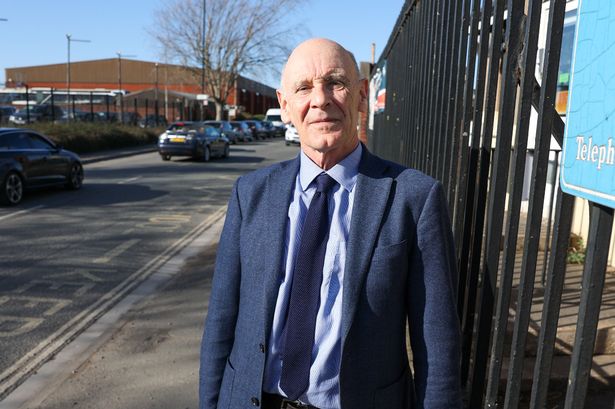Headteachers in Bristol have questioned the evidence behind planned reforms to special needs education as part of a government bailout. They warned that spending several millions on writing off debt and trying to reduce demand for support could be “an impossible task”.
The Department for Education has agreed to write off about £54 million in Bristol City Council ’s schools budget. This would remove most of the deficit built up over the past few years as demand is rising for support for pupils with special educational needs and disabilities (SEND).
But alongside that financial support, the council must agree to stringent reforms as part of the Safety Valve bailout programme. Heads asked council bosses for evidence that these reforms would fix the long-standing problems, during a schools forum meeting on Tuesday, March 26.
Read more:Bristol SEND bailout approved as government agrees to write off over £50 million debt
Read more:Warning Bristol SEND bailout will ‘make life a whole lot harder’ for disabled children
Tonya Hill, headteacher of New Fosseway School, said: “What evidence does the DfE have that the Safety Valve programme works? If you’re working with a mainstream school that’s got a school that was designed in the Victorian era, that doesn’t support children with speech, language and communication needs, and there’s not enough money to change the building, is Bristol going to be penalised because they can’t deliver on what the DfE has given?
“Because actually, it’s an impossible task. Why are there so many local authorities who are having such a big overspend in their high needs budget? Does the system work at the moment? Are we just trying to plug the gaps when we should be saying how do we work with these groups of young people?
“Are we just trying to support a system that is no longer fit for purpose for these children, who are crying out and saying ‘this current model doesn’t work for me’? We’re having children who are hurting each other, because they’re saying ‘actually I’m not being heard or listened to’.
“Everyone sitting around this table is doing all that they can to help these children. But I just feel like the powers that be need to step back and say ‘we’re throwing all this money at it, but do we need to relook at the SEND code of practice and our education offer’. It would be interesting to know how effective the Safety Valve programme is.”
Reena Bhogal-Welsh, director of education at the council, said she “wouldn’t dream of commenting” on the evidence that the Safety Valve programme works. 37 other councils are signed up to the controversial bailout deal, as they also face gigantic budget black holes.
'Huge scrutiny' expected
She said: “You’ve hit the nail on the head. I can’t speak for the DfE, and I would never dream of speaking for the DfE. And as we know, this [meeting] is currently being livestreamed, so I would never wish to put myself in that position.
“In terms of the evidence of Safety Valve working, I do ask that colleagues for your bedtime reading and homework, take a look at other local authorities and the agreements they’ve entered into. There’s a lot of rigorous accountability, and the scrutiny is huge, in terms of how the DfE will be holding us to account on what we’ve entered into the agreement for.
“But I can’t speak around the evidence. I’m really sorry. I don’t have that and I wouldn’t dream of commenting on it either.”
The education director gave a presentation about the Safety Valve programme to headteachers, but the slides were not published on the council’s website. Usually public meetings that are livestreamed are then made available for the public to watch back in future, but this one wasn’t.
The programme includes reducing demand for SEND support, so that more children stay in mainstream school settings for longer. It also includes making budget savings of about £10 million a year. The council has already invested £600,000 to speed up the EHCP process, partly using “robotics”.
Education, health and care plans are needed for children and young people with SEND to get support to help them stay in school. But the process of applying for one can often take many months. One issue, according to another headteacher, is that schools are not considered “professionals” in contributing to the application process and deciding what support is needed.
Simon Holmes, headteacher of St Philip’s Marsh Nursery School, said: “Often it’s the speed at which you can get things put in place. We’ve put in a lot of work in nurseries and early years settings for the children under the age of five. Last year I think we completed 12 EHCPs, so those children going into reception classes were already identified and had support there.
“The issue I have is the amount of time it’s taking for children to get the reports from health professionals and from various different agencies in order to get an EHCP, and that’s kind of a bit out of our control. There’s all kinds of things that seem to trip up a smooth process and clear pathway for these children to get the help they need.
“A senior person in our setting was told ‘well we can’t take your evidence, because within this process the school is not regarded as a profession’. Even though we’re the people that spend every hour of the day with these children, identifying their needs, putting in all this paperwork, we then get told ‘you don’t count as professionals in this process’.”
More details about the Safety Valve reforms are expected to be published next week on the council’s website, ahead of an upcoming cabinet meeting on April 9.






















